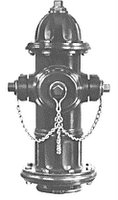There is also a non-systematic component to risk which is specific to the business you are investing in. Outperforming the market will depend on how well you mitigate this kind of risk. You certainly can't diversify it away by holding 150 stocks in your portfolio as many mutual fund mangers on Wall Street tend to do. As we have discussed before, the way to go is to build a concentrated portfolio which contains businesses you really understand and bought after a lot of thought and due diligence.
Apparently, there is another way to accomplish this and it involves Alpha. Wall Street firms' ability to conjure up portfolio "strategies" which puts more fees in their pockets is once again on display here. A recent Wall Street Journal article explained how "Portable Alpha" works. The most recent issue of Institutional Investor also had an insert which devoted a section to "Alpha Beta Separation" strategies. What is all the hoopla about? Here is how it's supposed to work. Clients are advised to get exposure to their benchmark index (Beta) through the use of derivatives, freeing up cash to allocate to Portable Alpha - money managers using hedge fund type strategies to boost returns above and beyond the Beta portion of the equation. You got it. The whole pie in the sky pitch assumes that these money managers will consistently beat the market. Well, that just doesn't happen (see Dreman's book for more details). Oh, and I forgot to mention that proponents of Portable Alpha charge hedge fund type fees to boot. It doesn't get any better than that. The Journal noted that "critics say portable alpha is nothing but Wall Street hocus-pocus that lets money managers rack up higher fees." They took the words right out of mouth.
